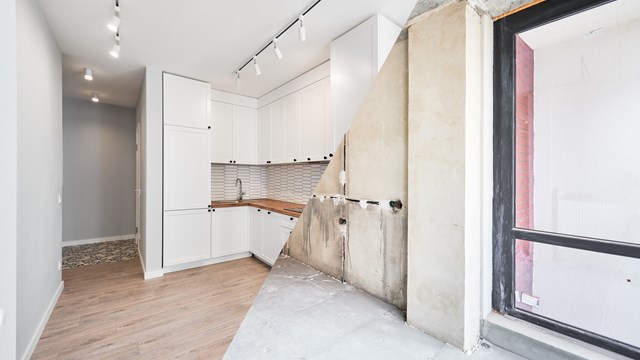—Awaiting Walls
“As an attorney who works with co-ops and condominiums and also handles construction issues, I must say that I do not think this is as black and white as you are describing it,” says C. Jaye Berger, Esq., a New York City-based attorney whose practice focuses on real estate and construction law and litigation. “First, it is increasingly common for condominiums to have such rules, which makes them more like co-ops when it comes to renovations. Therefore, the answer to this question is equally relevant to readers living in co-ops. The point of having such rules is not to drive you crazy or make your life more difficult, but is instead to protect the safety of you and your neighbors. Believe me I have heard about some crazy renovation work over the years that was done without either board approval or building department approval.
“The situation you describe seems to me to be a hybrid of structural and non-structural issues. Even though the building department in the town where you live has approved it—that is only half of the equation. The fact that you even had to get permits from the town to do this work tells me that it is considered ‘structural’ by the town. If you were just painting your apartment, we all would agree that neither your board would be involved nor the town building department. You would not need permits to paint.
“Without knowing all the facts, I can only guess about certain things, but I would guess that the reason your town required permits is the same reason why the condominium’s attorney is objecting. Changing the room count is not a minor thing. Consider this example. I know of a situation in a co-op apartment where the shareholder put up several non-load bearing partitions to create little living areas, then rented them out as rooms. When the board sued the shareholder, they were concerned not only about the subletting, but about the renovation. Putting up partitions changes the Certificate of Occupancy because it changes the room count. Changing the Certificate of Occupancy is much like applying for a permit to renovate an apartment.
“You say that the unit has ‘greater rent ability/potential for profit.’ Isn’t that just like the example I gave above, but on a smaller scale? You are creating new rooms by putting up a partition. They are rooms without windows and without the characteristics of bedrooms. In an extreme case, there have been fires in apartments where the room count had been changed with partitions and the firemen became disoriented because the actual floor plan was different from the layout they had been given.
“The board has the right to make appropriate rules and regulations for the building. Sometimes they are the same as those for the building department, but other times they may be more restrictive. In other words, the building department may allow something, but for some reason your building may not. They have the right to do that under the “business judgment rule.” It refers to the fact that the board has been given the authority by those who elected them to use their “business judgment” to decide what is best for the building. If the board turns down an application to renovate an apartment, the rule would apply. Trying to get an injunction on this issue may not be the best use for your money.”







18 Comments
Leave a Comment